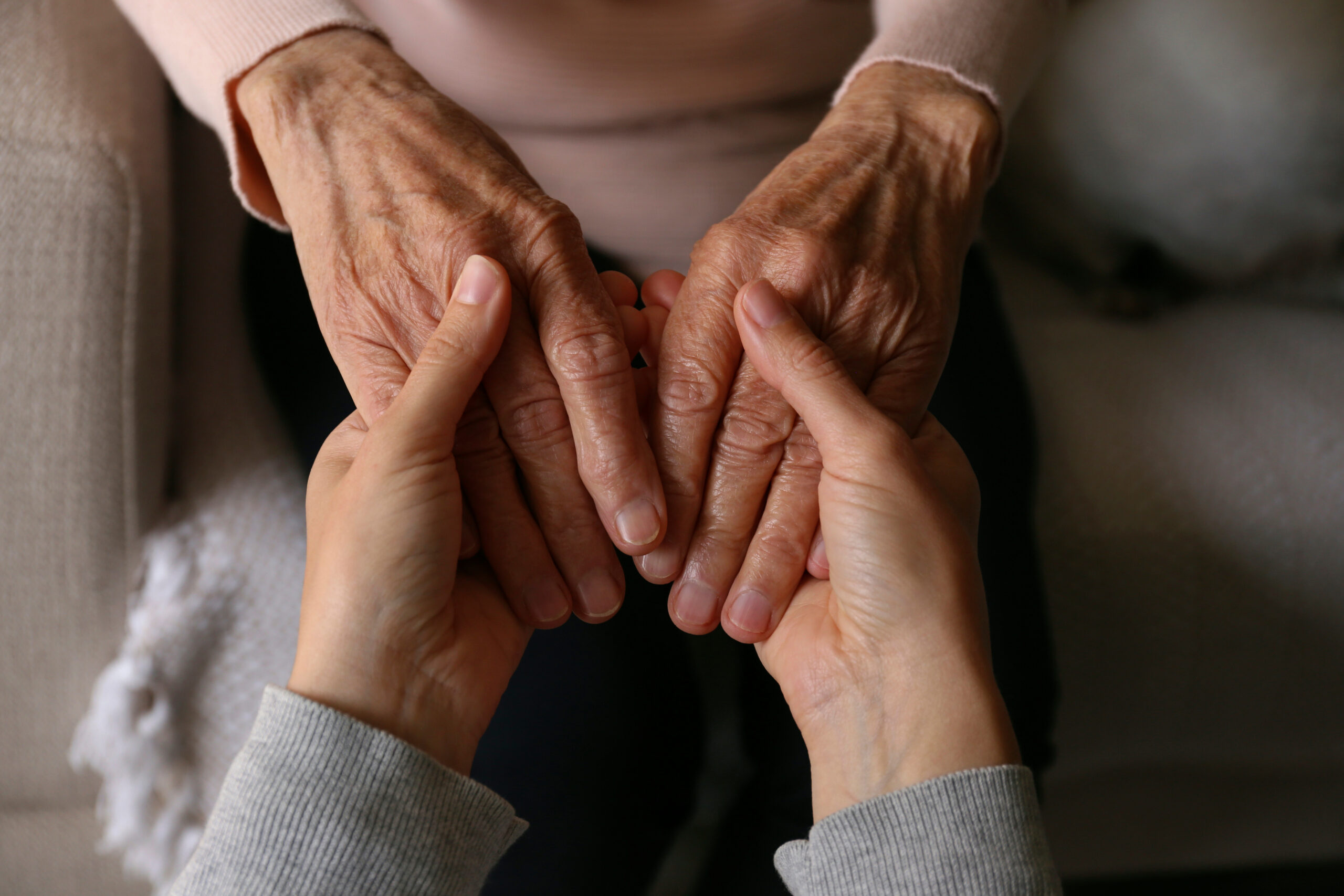
Years ago, when my grandfather died, my friends arrived at visitation with a small stuffed bear. I was in college by then, beyond teddy bear years, but I kept that eventually-dilapidated bear for years. He was a poignant reminder for me — of my dearly missed grandfather and of the power of showing up. My friends didn’t have to be there that day, but they were.
Now, decades later, we live in a frantic culture, one in which there’s always something more important to attend to, more pressing than going to a funeral or visitation. Our work obligations and family schedules take priority. But Deidre Sullivan was right when she gave this powerful advice over 20 years ago: “Always go to the funeral.”
Showing up matters.
A coworker’s father. A neighbor’s adult daughter. A friend you hadn’t talked to in years. Your high school band teacher. No matter the connection, the excuses usually come easier than your reasons for going. It’s kind of a far drive. Your weekend is way over-booked. You didn’t even really know the guy.
No matter the excuse, the right answer is always to show up.
Showing up isn’t always about the dead; it’s about the living. Attending the funeral conveys compassion in ways words can’t adequately convey. Your small sacrifice tells your coworker, your neighbor, your friend’s family that you value this connection.
It might be awkward; you might not know what to say. But still, show up.
It’s not about the perfect words.
That truth became clear to me when our neighbor’s mom passed away. We drove out to the suburbs on a weeknight to pay our respects because we valued our neighborly friendship. Still, I was nervous. Other than our neighbor and his wife, we knew no one there. As I made small talk with other family members, I stumbled through clumsy words and a few barely coherent phrases about how we knew the deceased. My cheeks reddened with embarrassment.
And honestly, that’s kind of the beautiful part of what makes funerals human. They aren’t scripted and polished; they’re imperfect and sometimes messy.
I’m sure those family members don’t remember the interaction. But I know my neighbor cared because years later he still talks about how we showed up.
Don’t feel like you need the just-right words. A gentle smile, a simple nod, or a hug can go a long way. Your presence is more important than your eloquence.
It’s about the gift of community.
I saw the gift of community clearly at my uncle’s funeral. The small church was overflowing with people who had known him from every corner of life: coworkers from his office job in the small town where I grew up, high school friends of his grown children, church friends who knew him as a boy. Their presence reminded us all how much my uncle was loved, how many lives he had touched, and how good it feels to be cared for by others. Often, the most meaningful funerals aren’t centered on rituals or speeches. They’re centered on the people who gathered.
Funerals are a collective act of caring. Showing up allows you to be a part of that support as a life is honored, providing a reminder that we don’t have to grieve alone.
So show up.
People won’t remember if you stumbled over words, but they will remember that you cared enough to be there. They might not know you were so nervous you always didn’t walk in; they will know that you showed up when it mattered most.
Funerals and visitations are often a blur of faded, fragmented conversations, but that isn’t what endures. Whether the setting is a church, a park, or someone’s backyard, what lasts isn’t the program or the setting. What lasts is the faces in the room, the shoulders leaned on, your quiet presence. That’s what people remember — showing up.
